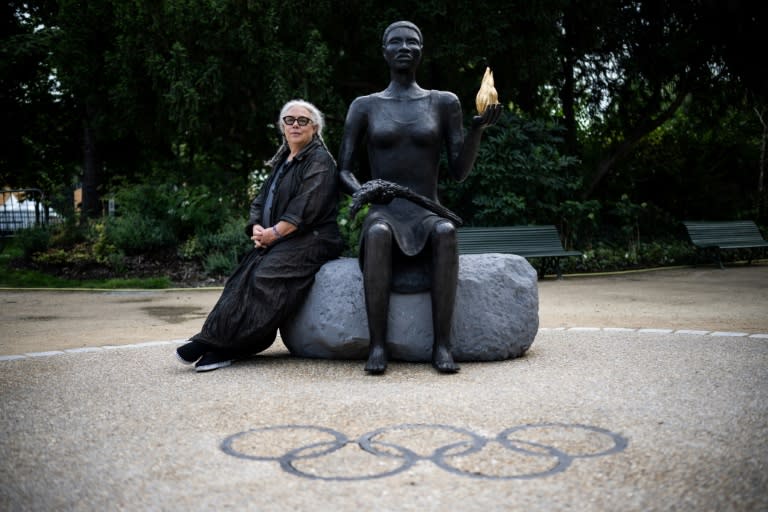France's far-right surge risks muddling Paris Olympics message

When the Olympics roll into Paris next month, the country could have a far-right government, risking seriously muddling the message around openness and diversity that organisers have been pushing for years.
France goes to the polls this Sunday for the first of two rounds of voting for a new National Assembly in snap elections called by President Emmanuel Macron earlier this month.
Polls show the far-right National Rally leading, although experts say it is too early to know how many seats they will win in the 577-member lower house and whether they will be enough to form a government.
But the prospect of the far-right taking power, once considered near-impossible, is being taken seriously by almost everyone -- with huge potential consequences for the image of the 2024 Paris Games.
"This event wants to be open, wants to be a stage for the whole world, to show Paris as a welcoming place," said sports historian Yves Gastaut, a co-curator of the "Olympism, a history of the world" exhibition on display in Paris.
"How does it work with an ideology in power that is an ideology based on the idea of rejection and the idea of fear of others?" he added.
The National Rally led by Marine Le Pen has expanded its popularity with an agenda that calls for massive curbs on immigration, French-first policies for public services, and a ban on Muslim headscarves in public.
- Diversity -
The marketing of the Paris Games has echoed the ideals of the Olympic movement, which was founded to promote peace and international cooperation -- in opposition to the surging nationalism of late 19th-century Europe.
Celebrating multi-cultural "diversity" is a more modern addition, which was underlined last weekend by International Olympic Committee head Thomas Bach as he inaugurated the official Paris 2024 Olympics sculpture.
Placed close to the Champs-Elysees avenue, the artwork is a larger-than-life bronze of a seated black woman, surrounded by chairs from across the world.
The work by American sculptor Alison Saar was "an invitation to take a seat and reflect on the beauty of the diversity of humankind," Bach said, while refusing to comment directly on French politics.
The official Paris Games slogan is "Games Wide Open", while the spectacular opening ceremony being planned on the river Seine on July 26 is set to showcase traditional French culture alongside modern influences rooted in immigration.
When rumours began circulating in March that Mali-born and Paris-raised R&B superstar Aya Nakamura was going to perform, Le Pen was one of the most virulent critics.
An appearance by Nakamura, who mixes French with Arabic and Malian slang, would "humiliate" the country, Le Pen suggested, taking aim at her supposed "vulgarity" and "the fact that she doesn't sing in French."
- Spoiled party? -
Organisers of the Paris Games were blindsided like the rest of country by Macron's early election call so close to the start of the sport.
The head of the Paris organising committee, Tony Estanguet, has been careful to avoid being drawn into the campaign.
"We aren't completely naive, we know what's happening in our country and in the world," he told French radio on Thursday. "We see the tensions, situations that are a bit worrying. Let's fight to make the Olympics a space for peace, sharing, emotions and a party."
Paris' Socialist mayor Anne Hidalgo has sounded more pessimistic.
Macron has risked "spoiling the party", she said this week, adding that she would refuse to stand in any photographs with Le Pen's prime ministerial candidate, Jordan Bardella, if he took power.
Bardella has sought to reassure observers by saying he would not interfere with the organisation of the Games.
"This event must be a triumph for the nation," he write on X, formerly Twitter, on June 14.
Gastaut, the historian, said the Olympics often ended up being defined by the events of their time, with the last edition in Tokyo held during the Covid pandemic, for instance.
"Every Olympiad starts with its pre-conceived ideas, you might say its foundational values, and then things happen during it, which give it another image that was not expected beforehand," he told AFP.
adp/gj


